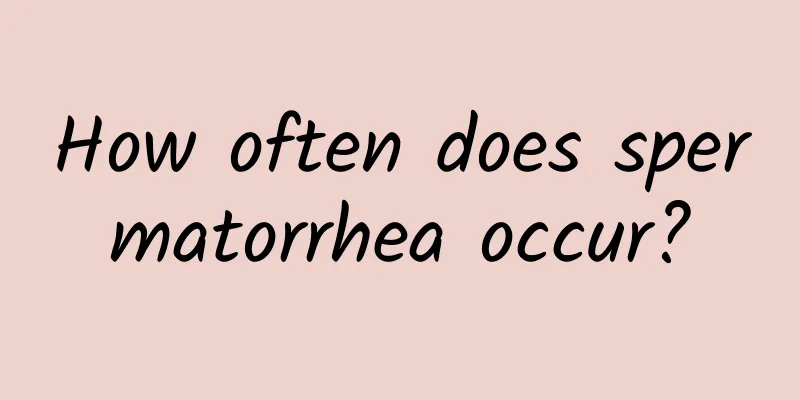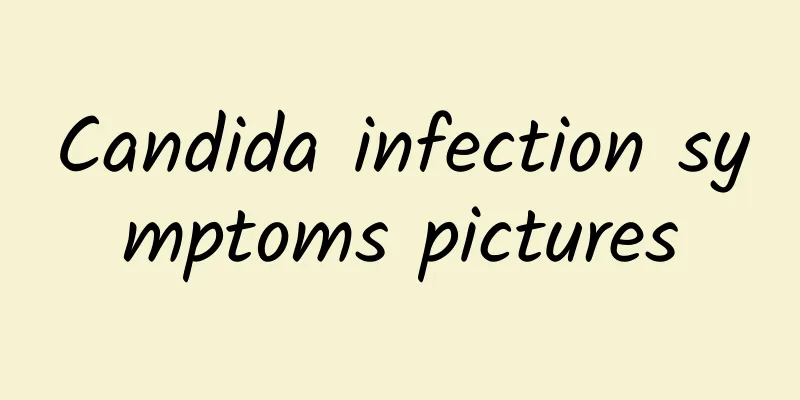What are the methods for testicular examination?

|
The testicles are mainly used to produce sperm. Once the testicles have a disease, male fertility will be directly affected. What patients need to do is to go to the hospital for examination in time, receive treatment early, strive to cure the disease as soon as possible, and regain fertility. So, what are the common clinical testicular examination methods? ① Incisional biopsy: After the scrotal skin is disinfected and anesthetized locally, the testicle to be examined is fixed by hand, the surface scrotal skin is tightened, and a 1-2 cm incision is made in a site with few blood vessels. The incision passes vertically through the skin, endometrium and tunica vaginalis. A "∧"-shaped incision of about 0.5 cm long is made in the testicular white membrane. The testicle is gently squeezed to expose the testicular substance. A little testicular tissue is taken as a specimen and sent to the pathology department for pathological examination. Strict disinfection and careful operation are performed during the operation, which generally does not cause infection, hematoma or pain. A small number of patients have a decrease in sperm count in a short period of time after the testicular tissue is taken, which can gradually recover in about 4 months. Cut the skin and testicles, and take out the seminiferous tubules in the testicles. This way, the collection is very complete, and can accurately reflect the spermatogenic function of the testicles, without any errors in the examination, and the results are reliable. However, this examination method is very invasive, requiring incision of the skin and testicular white membrane, and sutures and removal of stitches after the operation, which brings more pain and inconvenience to the patient. Although this examination method is accurate, it is not easy to carry out clinically due to the great pain and the patient's fear of surgery. ②Puncture method: Use the needle and syringe for puncture. After routine skin disinfection and anesthesia, puncture the needle through the scrotal skin and into the testicle. Pull out the needle core, aspirate the needle to obtain a little testicular tissue, and then pull out the puncture needle. If too little tissue is extracted at one time, you can aspirate multiple times from different parts. After the end, bandage the puncture site and send the testicular tissue for inspection. Bandage the puncture site and send the testicular tissue for inspection. Compared with the incision method, this method is less damaging and less painful, and does not require sutures. Its disadvantage is that needle aspiration cytology can only obtain a few tissue cells, and the overall structure of the tissue cannot be seen, so it cannot accurately reflect the spermatogenic function of the testicles, and there are errors of false positives and false negatives. The test results are unreliable and prone to misdiagnosis. ③ Testicular tissue puncture and sampling method: After disinfecting the skin with 1‰ Sanitizer, perform spermatic nerve block anesthesia with 2% or 1% procaine, 10 ml on each side, to reduce the discomfort during testicular fixation and compression. After fixing the testicle, disinfect the puncture site with iodine, perform infiltration anesthesia and deep anesthesia in the avascular area, and then use the vas deferens dissection forceps to select the avascular area to pierce the skin and endometrium, expand the puncture hole to about 0.7cm, and reach the surface of the testicular tunica vaginalis. Then use the tip of the dissection forceps to pierce the testicular tunica vaginalis wall and viscera (testicular white membrane) to a depth of 0.5cm, and then use the spreading forceps to separate it to a small opening of 0.5-0.7cm. At the same time, use the fingers that fix the testicle to slightly squeeze the testicle so that the testicular tissue protrudes from the small opening, quickly pull out the dissection forceps in the testicle, and use ophthalmic surgery to cut a small piece of testicular tissue and send it for biopsy. ④ Rapid testicular biopsy: This method is a new method that Director Yuan Weiqing has further improved on the above traditional method. Its operation is not as traumatic as the incision method, but the testicular tissue removed is intact and can accurately reflect the spermatogenic function of the testicle. |
<<: Why do my testicles hurt when I touch them? What disease is this?
>>: What is testicular enlargement?
Recommend
Testicles become itchy and red the more you rub them
In fact, the male testicles are also a relatively...
What causes a burning sensation in the glans penis?
Men have many diseases, and different diseases ha...
What is the reason for weak ejaculation?
It is normal for men to have weak ejaculation, wh...
The harm of stinging sensation when urinating to men
We all know and understand that men are the pilla...
Causes of excessive testosterone in boys
When men have testosterone, they must make a judg...
What to do with groinitis and abscess? Chinese medicine and external treatment are effective
Have you noticed swelling and pain around your na...
Men don’t need to be afraid of prostatitis! You can recover by “sitting”
Although prostatitis is not a fatal disease, it w...
What is Prostate Specialty Treatment?
Modern men are under great pressure. Staying up l...
Male nipple pain
Men often think of breast pain because women expe...
Erectile dysfunction treatment options
Genital erectile dysfunction is a kind of erectil...
Six benefits of men doing this to stay healthy!
Do you know the six benefits of running for men? ...
Several treatments for oligospermia
I believe everyone knows the importance of sperm ...
To supplement brain nutrition and enhance memory, you should eat like this!
For us humans, the brain is one of the most impor...
How should abacterial prostatitis be treated?
Most men may encounter aseptic prostatitis at ord...
Is it true that raw pumpkin seeds can treat prostate problems?
Prostate disease is a disease with a high inciden...









